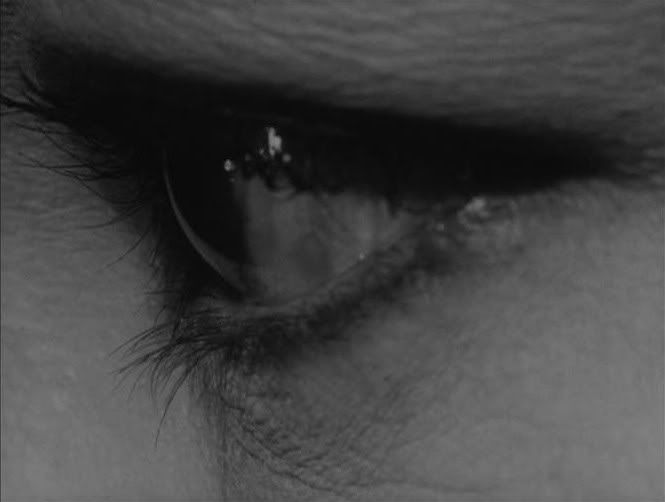
The Face of Another is the third of four feature collaborations between director Hiroshi Teshigahara and novelist Kôbô Abe, based on Abe's novel of the same name. It's also arguably both Abe's best book and, partly as a result, the best film the duo made together: a paranoid, dreamlike examination of identity, sexuality, fidelity, disguises and superficial appearances. This haunting film centers around the businessman Okuyama (Tatsuya Nakadai), who is badly scarred in a fire. When he receives a realistic mask from his psychiatrist/plastic surgeon (Mikijirô Hira), he begins to become disassociated from his identity, discovering that his appearance is more intimately linked than he had suspected with his behavior, attitudes and identity. He not only looks like an entirely new man, but increasingly becomes one, once he sheds his bandages and takes on a new face. In this new identity, he seduces his wife (Machiko Kyô) but is hurt when she goes along with the advances of this stranger — even though she later insists she knew it was him.
The film is elliptical and slippery, boldly fragmenting its narrative as the hero muses with his psychiatrist — who also acts as his friend, his guide, his doctor, and his moral arbiter — about the nature of identity and the question of what constitutes the self. The cinematography has a startling clarity that lends force to Teshigahara's outrageous imagery. The film frequently seems to be a dream, flowing with casual absurdity from one bizarre set piece to another. This quality is especially apparent in the scenes taking place in the psychiatrist's office, in which disconnected body parts float in the air or serve as decorative flourishes. At one point, Okuyama leans back against a wall paneled with tiny ears sitting in tile boxes. The office is segmented with clear walls on which medical diagrams and geometric patterns are drawn, while replicas of body parts are inset into the surface of the wall, making them look like they're suspended in space. Within this surrealist office, the film's unsettling diversions and subplots seem almost like logical reactions to a ridiculous world.
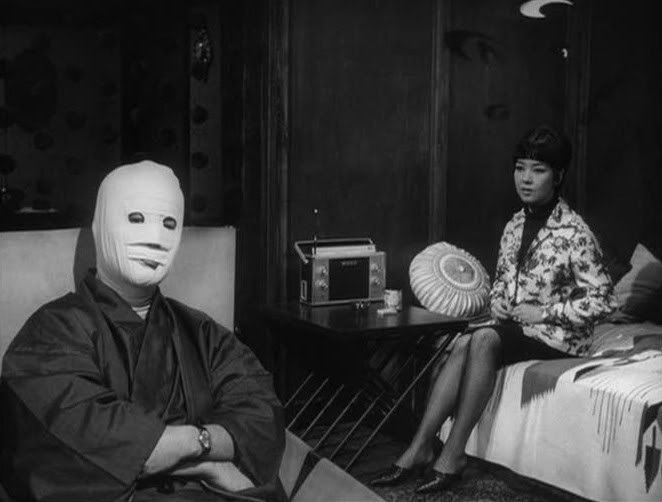
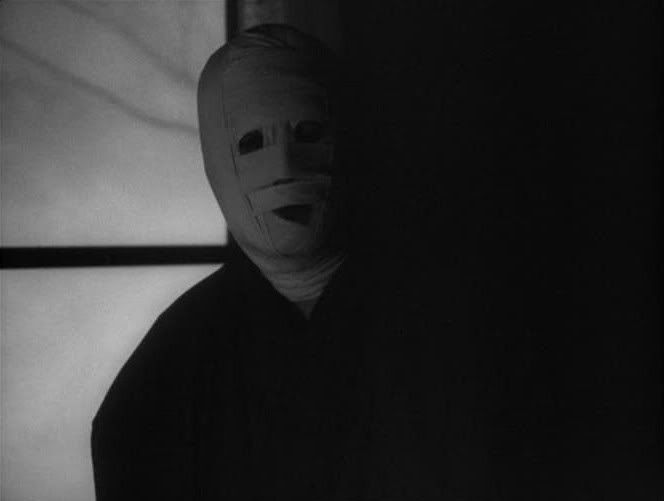
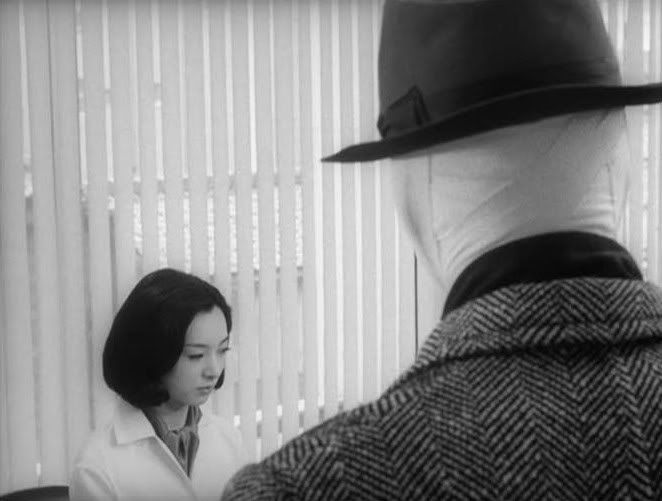
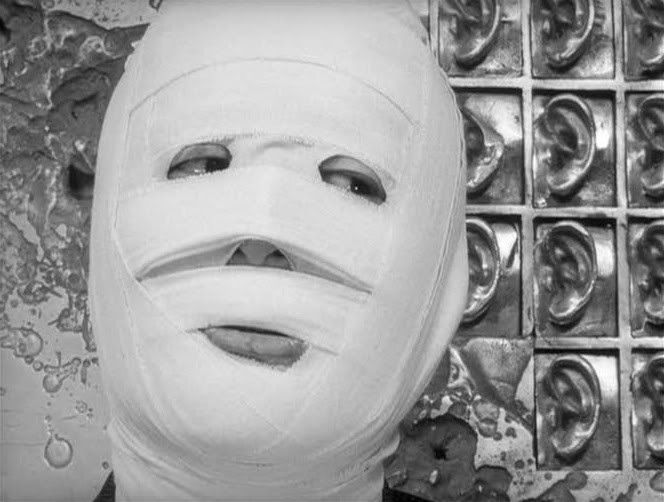
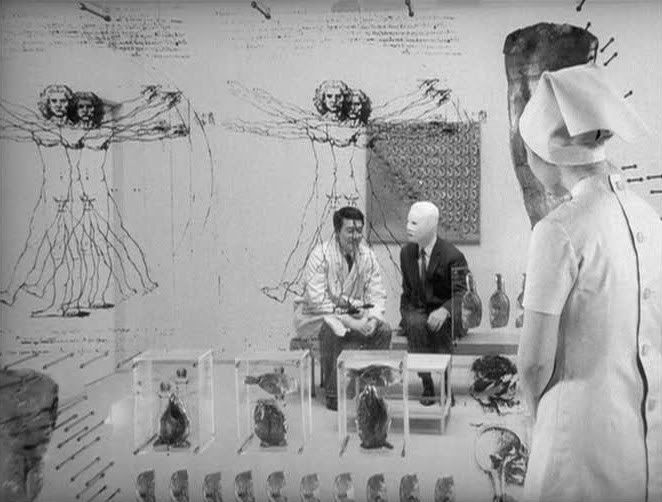
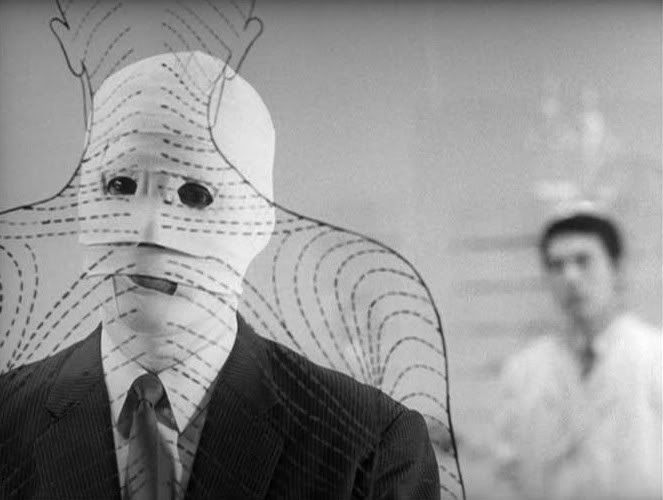
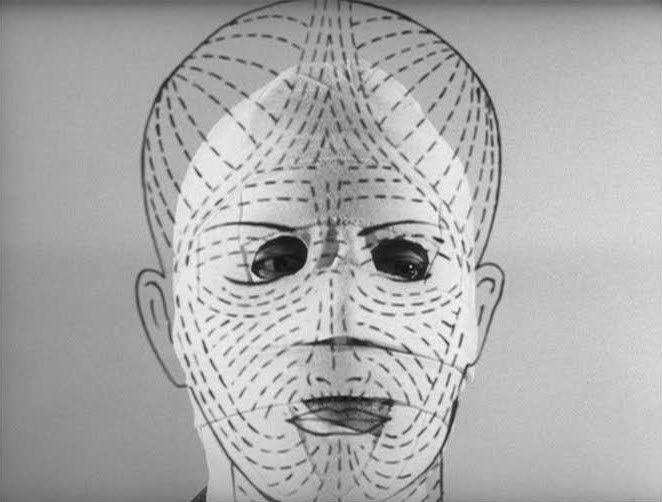
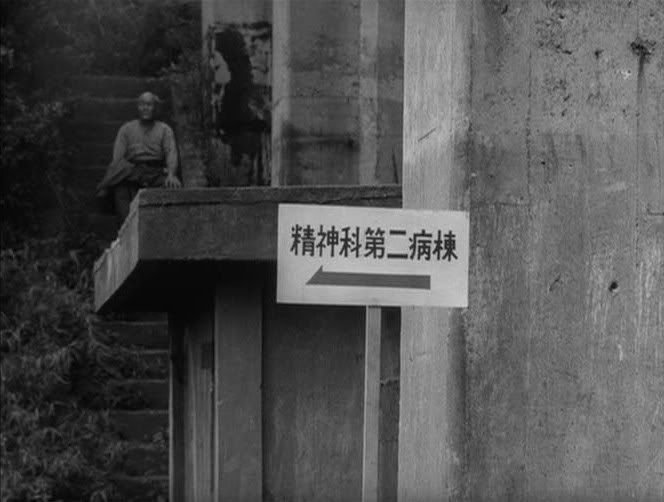
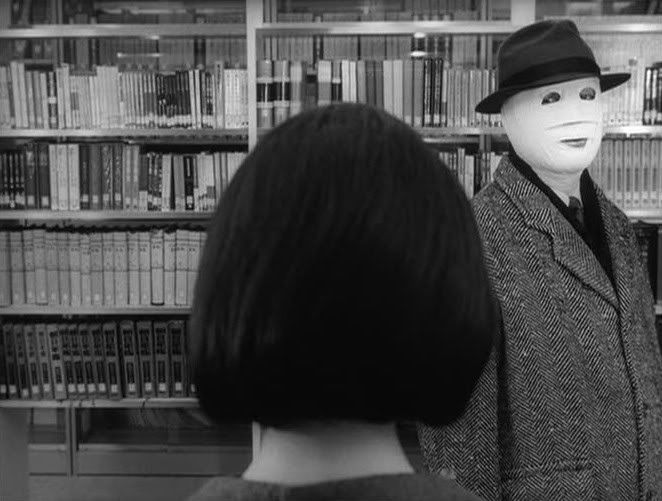
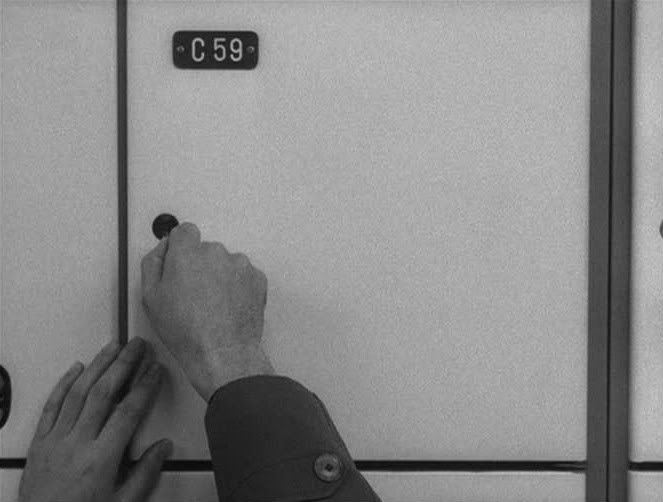


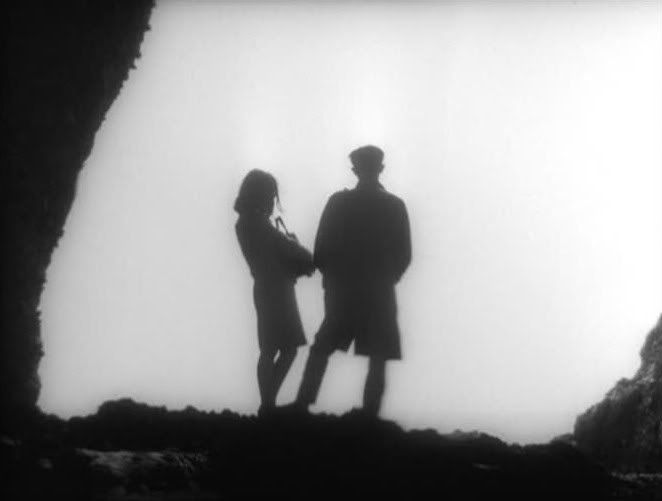
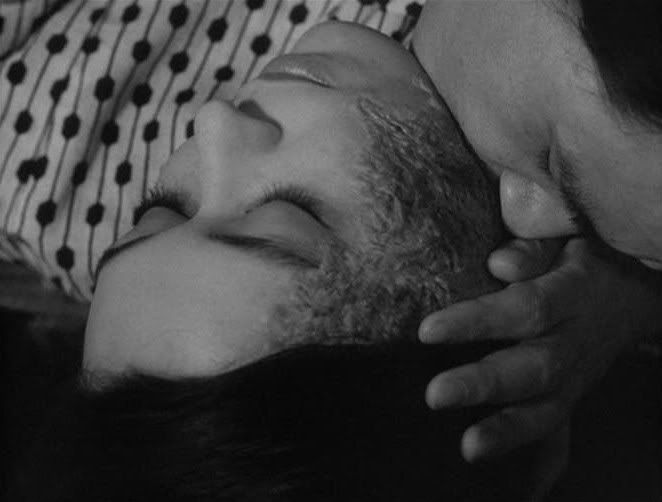
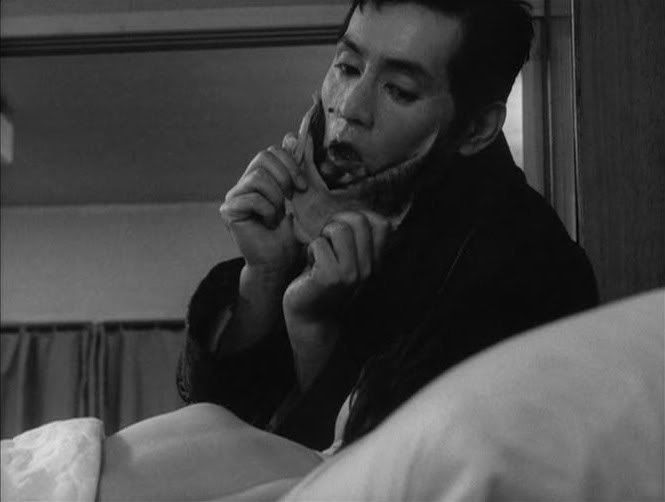
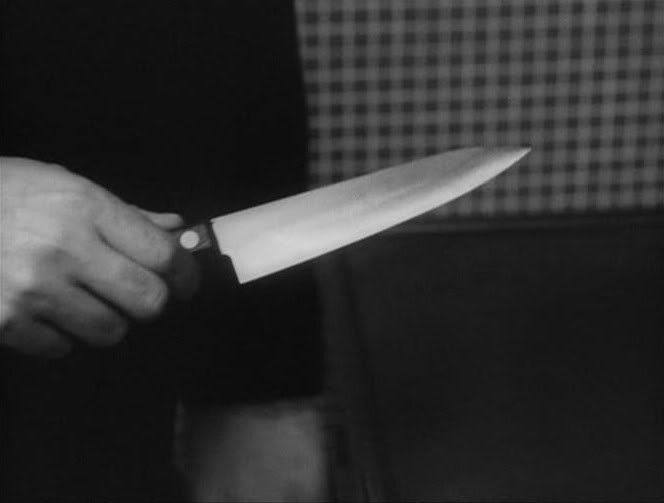

"The film frequently seems to be a dream, flowing with casual absurdity from one bizarre set piece to another."
ReplyDelete"The film is elliptical and slippery, boldly fragmenting its narrative as the hero muses with his psychiatrist — who also acts as his friend, his guide, his doctor, and his moral arbiter — about the nature of identity and the question of what constitutes the self. The cinematography has a startling clarity that lends force to Teshigahara's outrageous imagery."
Brilliantly proposed, and another fecund film essay, noted here for it's lucid and unpretentious style. This existential "science fiction" film is definitely Teshigahara's most auspicious and defining film, although my deep love for the celebrated WOMAN IN THE DUNES probably narrowly edges it. PITFALL would be the third masterpiece by this Japanese master. I can certainly see why you included this is your "Films I Love" series as it's fully deserving for a bevy of reasons.
I must say this is one of the greatest screen cap displays I've ever seen at any site, and that last haunting still says it all.
Off topic here Ed, but I wanted to issue my congratulations to you for the Wilco ranking of ONLY THE CINEMA in the top 20 along with fellow film travelers Marilyn and Rod and Greg Ferrara. I know that you are a very modest guy and don't seek out plaudits, but methinks this is a staggering accomplishments when one considers the hundreds of thousands of film blogs out there. The level of erudition, superlative taste and passion display here needs no elaboration, but I wanted to tip my cap to you.
ReplyDeleteThanks, Sam. I love all three of the Teshigahara/Abe films I've seen; the fourth is unseen by me and largely unavailable in the West, which is a shame because The Ruined Map is a fantastic novel and I'd love to see Teshigahara's adaptation of it. This film is my favorite, but only by a narrow margin.
ReplyDeleteAnd thanks for the mention of the Wikio rankings. I try not to pay attention to that stuff and just do my thing, but I do appreciate the praise.
I've never seen this - great pictures especially those strange ones in the middle...
ReplyDeleteWhat complex framing. Would have guessed that these are from French films, if not for the actors. Must check this out.
ReplyDeleteAnd congrats, Ed, for the ranking. And also for the mention in Muriel. Top stuff.
Thanks, guys. It's a very visually striking movie, obviously, like all of Teshigahara's films.
ReplyDeleteI feel "Pitfall" is his masterpiece. That long gliding take through the overgrown path and the hopeless sense of dread are amazing.
ReplyDeletePitfall is great, Joseph, and I'm glad to hear some appreciation for it, since it often seems to be overlooked in favor of the other Teshigahara/Abe films.
ReplyDelete